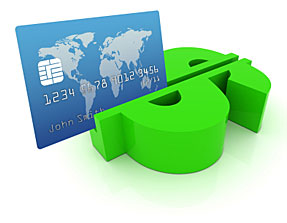If you’ve been in e-business very long you’ve definitely encountered the frustration of credit card chargebacks. A chargeback is when a customer disputes the charge to your company on their bank statement. The merchant processing bank “charges it back” to you and the funds are immediately removed from your bank account.
For starter businesses that may have a low regular balance in their checking account a chargeback can cause you to be overdrawn in your bank account. It’s important to always set aside a buffer of your income to keep in your account in case a chargeback occurs.
Banks highly favor the consumer so it can be very difficult to get your money back. In many cases a merchant bank will charge you a “chargeback fee” that can be anywhere from $10-50 when this happens. It’s an extremely discouraging situation for small business owners who don’t have the surplus to cover this loss or the time to fight the chargeback.
The best way to prevent chargebacks is to be prepared by having tight fraud checks and clear documentation about your company and order process. We’ve come up with nine steps to help you prevent and win chargebacks.
There are three primary reasons you will encounter chargebacks.
- Legitimate customers who placed legitimate orders, but either forgot the transaction or had issues with the purchase.
- Fraudulent purchases where the credit card info was stolen and cardholder did not participate in transaction
- Fraudulent purchases were customer made a legitimate transaction with the intentions of disputing the charge to attempt to get the product for free.
Let’s discuss a few ways to prevent chargebacks from the first example, legitimate customers.
1. Make sure your merchant name and business name match.
Many companies may have a corporate business name and a separate “DBA” (Doing Business As) name. For example, your company may be called “Awesome Company, Inc” but your website name is “MyEBizSite.Com”. When you establish your merchant account to process credit cards on your site make sure that you have “MyEbizSite.Com” as your “DBA” name. As a result, customers will see “MyEbizSite.Com” on their bank statement and will be more likely to recognize the charge. If you put “Awesome Company, Inc” the customer will likely have no idea what that’s for and will dispute the charge, resulting in a chargeback.
2. Make sure your telephone number is present on the charge slip.
If you review your credit card statement you will see that many merchants have both their names and phone numbers listed. The phone number gives the customer an easy way to contact you if they don’t recognize the charge. People are busy and if they don’t recognize the charge and don’t see an easy way to get more information about it, they will file a chargeback, costing you a LOT OF MONEY.
3. Specify what your charges will appear as on your receipts.
On your final “checkout success” page of your shopping cart and in your order confirmation emails, be sure to include some language about how the charge will appear on your bank statement. This is yet another reminder to customers so that they will remember the charge when that dreaded bill comes in thirty days later.
4. Be sure to process return or no-stock refunds as quickly as possible.
If a customer returns an item and gets impatient waiting for you to issue a credit to their account they may file a chargeback. Additionally, if you charge a customer and then cancel the order or hold an item on backorder with shipping, the customer may file a chargeback. Process refunds quickly and maintain clear communication with the customer on the return or shipping status of their order.
By following these steps you will greatly reduce the number of credit card chargebacks you will receive from legitimate customers. In our next post we’ll review five more steps to fight chargebacks.
In the meantime, what are some steps you’ve taken to prevent and win chargebacks for your e-biz? Let us know by leaving a comment below and don’t forget to return for the next segment.


Fred McKinnon liked this on Facebook.